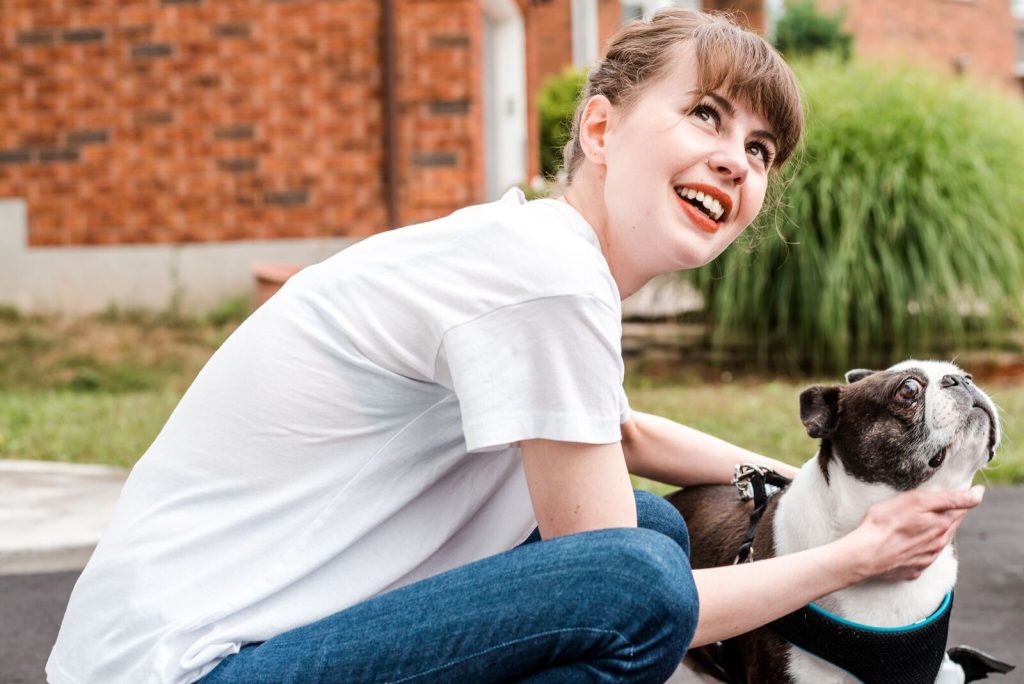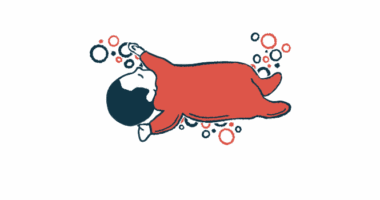In Memory of Serena Lawrence, Who Inspired Voices of the Hurting and Sick
Wednesday’s evening air was heavy. It was as if Atlas kneeled and tugged the sky down with him. I drove through the California hills and beaches of Santa Cruz for hours, searching for anything that could relieve my inexplicable despair. While driving, I remembered the month before, when I sat with Serena over tea and described similarly thick air in the hours before I received my call for transplant.
“It was supernatural; like the universe was foreshadowing the pain to come,” I whispered dramatically.
Without missing a beat, eyebrows raised, Serena quipped, “That’s ‘spooky boy’ behavior.”
On Wednesday night, Sept. 26, as I grappled with my spooky boy behavior, Serena passed away.
***
Serena Lawrence was a spunky 30-year-old Canadian with an honors degree in fine arts from the University of Waterloo. She loved indie rock bands and loved, even more, her Boston Terrier, Sammers.
At age 25, on Dec. 21, 2013, Serena was diagnosed with pulmonary arterial hypertension. The artist-turned-writer created a website, The PHight or Flight Project, to share her thoughts on the disease as well as the stories of others with pulmonary hypertension (PH). She wrote in 2016: “I wanted to help lend a voice to young adults who are facing PH in hopes of offering support, and perhaps a sense of friendship.”
Serena soon took that mission to greater heights, elevating the voices of many other disease communities. In her role as senior managing columns editor at Bionews Services, she recruited columnists from disease and disorder communities including pulmonary hypertension, multiple sclerosis, lupus, endometriosis, and cystic fibrosis.
And yes, she created friendship, too. Serena recruited me as a columnist, and we quickly bonded over our love of music and lame jokes. Bionews Services is a virtual company, so most of our communication is over the internet. Serena took glee in sending me jokes that would make me burst out laughing in the middle of silent libraries while working “alone.” She could turn any bad day into a funny one. I could use her talent now.
During our online bantering, I joked about flying over to Ontario where she lived to eat poutine with her. A few weeks later, I was on a flight to Canada for “work collaboration.” We enjoyed maple syrup and tea and laughter together in late August. You’d never have guessed she was sick — she was radiant.
In my last column, I wrote that I felt desensitized to death. Serena’s death cracked that balm. She was too clever, too hilarious, too young to die, I thought. On Sept. 20, when she told me she’d been diagnosed with pulmonary veno-occlusive disease and given a few weeks to live, I couldn’t believe it. It was sudden and surreal. But all who have terminal illness know better than to say that “we can fight this and win this.” Disease is merciless.
Humor was how she best coped. She joked and joked about how people would react to her death. The last time we talked, she made me swear I’d write the “column to end all columns” about her. I’m afraid this won’t do, though. She’d likely read this and tell me to loosen up by adding jokes.
She joked even when she revealed her prognosis to me. The only absolutely serious moment we shared was over tea in Canada when she told me she wasn’t ready to die; that there were still many more rock shows to attend. Four months ago, she wrote in the dawn of her third decade that “as a 30-year-old, I still need to be able to dream about a future, make goals for myself, stay up late on weekends, make bad choices about buying designer high-heels, and have dessert at least once in a while.”
When we received news of Serena’s passing, the company’s communication channels flooded with testimonies of her grace and kindness, and gratitude that she recruited and encouraged columnists with dozens of diseases and disorders.
Serena represents a lot. She represents the need for us, the sick and disabled, to project our voices and self-advocate. She represents the power of crossing into other disease communities to create a wider community. She represents the empowerment of writing and art in the midst of illness. She represents the tragedy of life ended too short.
Serena was mighty and brilliant. It’s a cliché, but one that fits when addressing a life lived in the turmoil of terminal illness: Rest in peace, finally.
Click here and here to read more of Serena Lawrence’s writing.
***
Note: Pulmonary Hypertension News is strictly a news and information website about the disease. It does not provide medical advice, diagnosis, or treatment. This content is not intended to be a substitute for professional medical advice, diagnosis, or treatment. Always seek the advice of your physician or other qualified health provider with any questions you may have regarding a medical condition. Never disregard professional medical advice or delay in seeking it because of something you have read on this website. The opinions expressed in this column are not those of Pulmonary Hypertension News or its parent company, Bionews Services, and are intended to spark discussion about issues pertaining to pulmonary hypertension.











Cole
My Deepest Sorrow and sympathy's to all who loved this precious young lady. As I posted before when I look at her and read the story of her life, my eye's well up with tears and my Heart is even heavier.
My God Bless this little girl, and may she be in charge of legions of Angels sitting right near Jesus Christ who dispatches her to all in need of a smile.
Ronald Cole